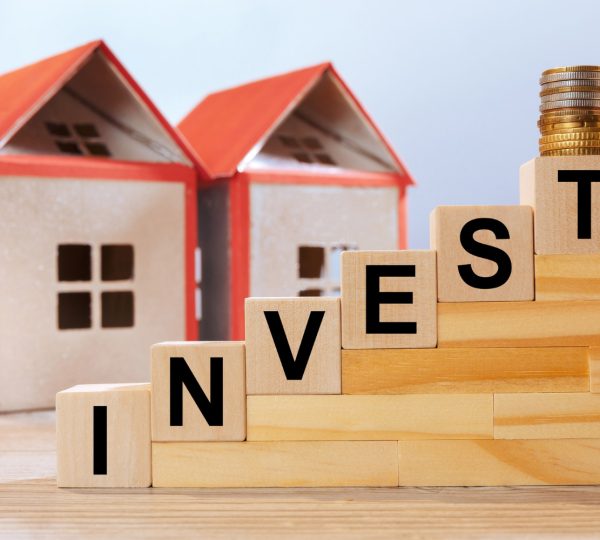It is possible to buy a property with a salary of $50,000.

It is possible to own a home while earning $50,000 annually. Homeownership is now within reach for many borrowers thanks to low-down-payment loans and down-payment assistance programs.
But everyone has a different financial situation. Homebuying budgets vary widely, even among those with the same annual income. That’s because a wide variety of factors, not simply annual salary, go into determining your monthly housing costs.
How much house can I afford if my annual income is $50,000?
With a yearly income of $50,000, a person can purchase a home with a price tag of $180,000 to nearly $300,000. Because your ability to afford a house depends on more than your annual pay. There are numerous additional considerations than these, such as your credit score, bills, and mortgage rates.
How Much Can You Afford to Put Down on a Home?
The size of your down payment will also significantly impact your budget. The standard minimum for a down payment on a low-interest mortgage loan is three percent. A 3% down payment on a property worth $180,000 would be $5,400.
How Debt to Income affects housing expenses
DTI is the ratio of your monthly gross income to your total monthly debt payments. This calculation includes your expected mortgage payment and the minimum payments due on your credit cards, automobile loans, and school loans. Monthly debt payments do not include fees for electricity or streaming services.
Mortgage lenders use the DTI ratio to calculate a borrower’s ability to make a monthly mortgage payment. The higher your monthly debt obligations, the less you can afford to put toward your mortgage each month and keep your debt-to-income ratio (DTI) low.
Your debt-to-income ratio should be between 30 and 40 percent to be eligible for a mortgage loan.
With a monthly salary of $4,167 and a yearly income of $50,000 (a 41% DTI ratio), your housing and other loan payments can be, at most, $1,700 monthly.
Tips to increase your home buying budget to $50K a year
According to the National Association of Realtors, the median price of a home in the United States is $366,900. However, you should expect to pay more for your ideal home in high-priced property cities like New York, Los Angeles, Las Vegas, Seattle, Denver, and Dallas.
First-time buyers need to boost their purchasing power in light of the current real estate market. Several methods are outlined below.
- Increase your down payment
Consider making a larger down payment of 10% to 20%. With a more significant down payment, you can afford a higher-priced property, increasing your chances of getting the one you want. Remember that you may always ask for money from friends and family if you need it.
You can also look into the down payment and closing cost assistance programs state and municipal governments offer. You may or may not qualify for these programs depending on your financial situation.
- Reduce your current debt load.
The percentage of your income that goes toward paying off debt is based on how much you owe on credit cards. You can increase your home loan eligibility by reducing debts like credit card balances or auto payments. The maximum price in the above example may be raised from $234,000 to $270,600 if, for instance, your monthly responsibilities were reduced by $200.
- Use a second loan as a down payment of 20%.
Dual house financing, in which you use the proceeds from two loans to pay off the first, is another option worth considering. This method is often called a “piggyback loan” or “80-10-10 loan.”
4: Get a standard mortgage and buy a house
A conventional loan requires a 3% down payment regardless of the loan amount. Additionally, down payment aid, grants, or even gifts from family and friends can often cover the down payment cost. Please be aware that the minimum credit score most lenders require for a 3% down conventional loan is 620 or 640. Those with less-than-perfect credit can benefit more from an FHA loan.
- Obtain an FHA loan to purchase a property.
With a credit score of 580 or better, an FHA-insured loan requires a 3.5% down payment. Those with FICOs between 500 and 579 must pay 10% down.
However, the cost of these loans may increase because of FHA mortgage insurance. Both a one-time charge and a recurring monthly subscription must be paid. However, the debt-to-income ratio for an FHA loan might be significantly greater than that for conventional credit. Your FHA loan payment may be as much as half of your pre-tax income.
You might also refinance the FHA loan to get rid of the mortgage insurance payments at a later date.
- Fixing your credit
Risk-based pricing is standard in conventional (non-government) loan products; if your credit score is below 740, you should expect to pay a higher interest rate. When your credit score drops, so does the cost of your mortgage insurance. These steadily increasing expenditures are eating away at your ability to buy a home.
Following the steps in this tutorial can lower your interest rate and monthly mortgage payments. You might even use it to buy the house of your dreams. Your chances of being accepted into a loan program with a more excellent debt-to-income ratio will improve as your score rises.
- Negotiate with the seller
If you need help haggling down the purchase price, you can ask the seller for a contribution instead. The seller’s contribution to closing expenses is typically between 3% and 6% of the sales price, depending on the type of mortgage you choose.
When the time comes to buy a home instead of continuing to rent finally, this can be a game-changer. The seller may pay some or all of the buyer’s closing fees, negotiate a lower interest rate, or pay the buyer’s mortgage insurance in a lump sum.
Remember that sellers are less likely to make compromises in sellers’ marketplaces. However, if they are desperate to sell quickly or the home inspection becomes problematic, you may have some wiggle space in the price.
- Invest in a building with multiple units.
Buying a multi-family home rather than a single-family home is a technique that many first-time buyers overlook. You can own a duplex, triplex, or fourplex and live in one of the units while renting out the others. This allows you access to primary residence loan products with low rates and closing charges. The rent you collect might go toward your mortgage, giving you a double benefit. If you plan to live in one of the apartments, you can use a low-interest VA loan or FHA mortgage.



